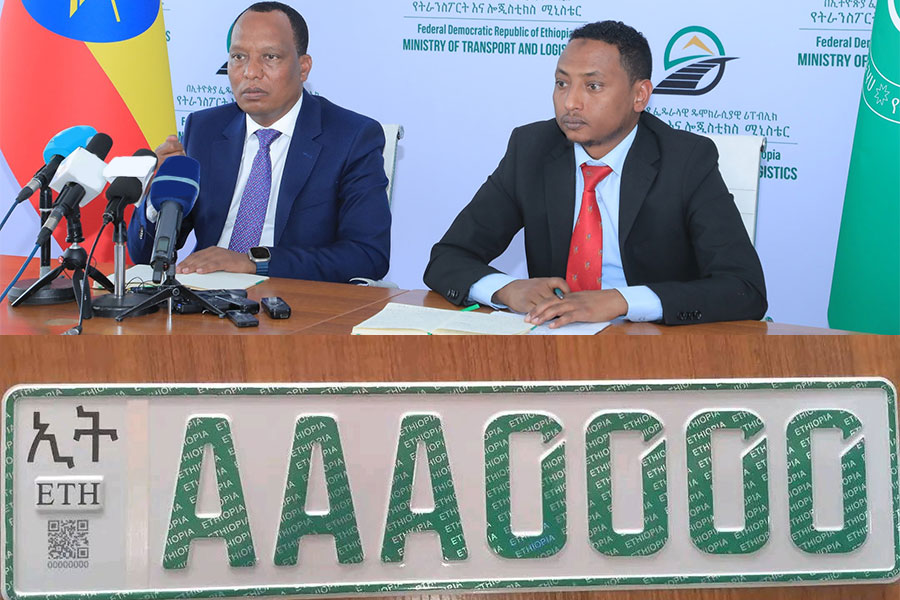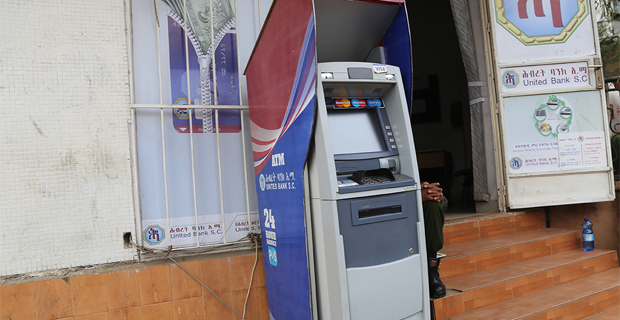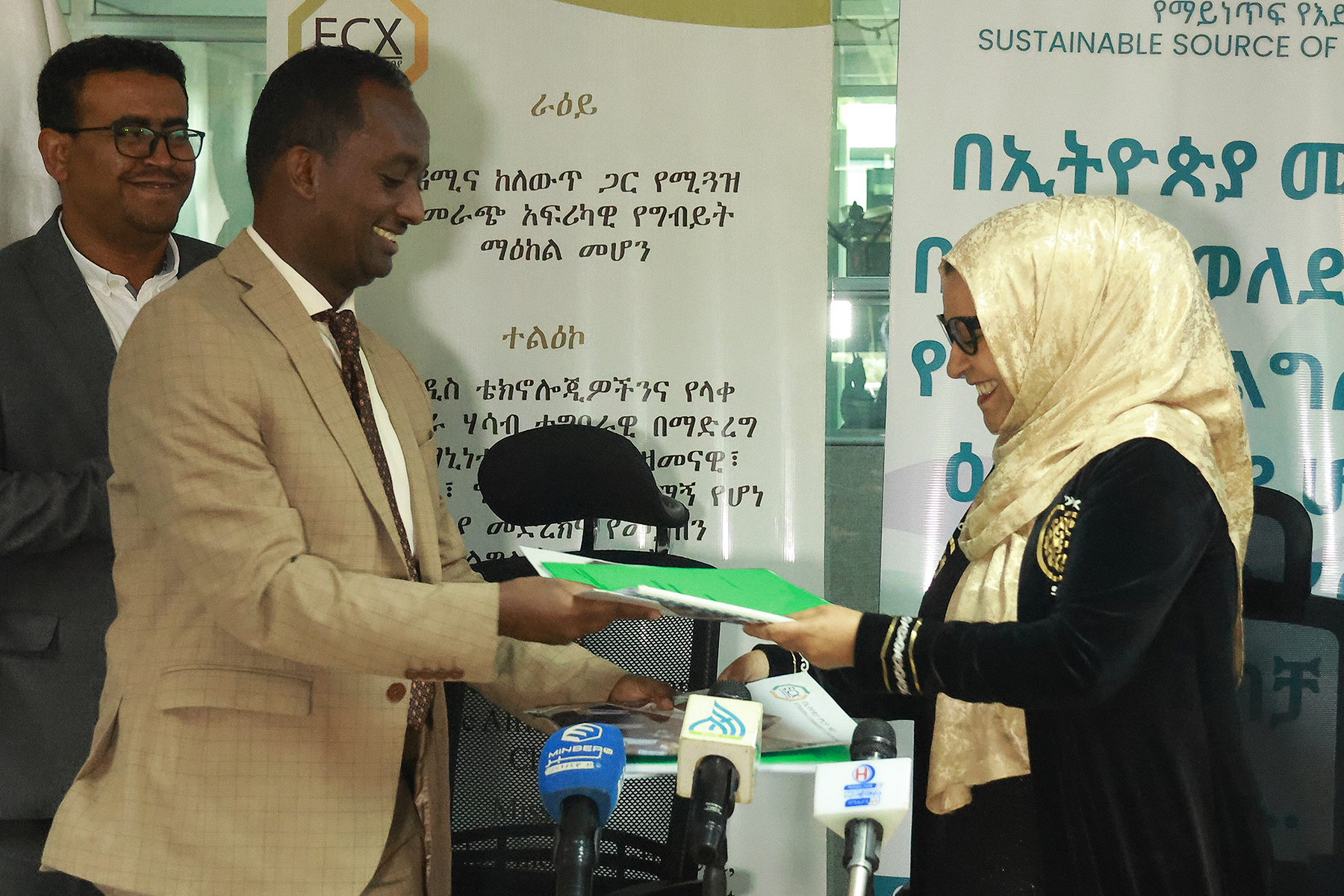
Tigray Regional State has invested 2.5 million Br to digitise its urban land management system, which enables users to apply for land lease and landholding certificates.
Software developers from the Ethiopia Institute of Technology under Meqelle University crafted the Integrated Urban Land Service Management System after being hired by the Regional State's Bureau of Urban Development, Trade & Industry. A team of three university lecturers with support from university students have developed the electronic system under the University-Industry Community Linkage programme.
Led by Selama Gebremeskel, head for Software Engineering at the School of Computing at the Institute, the team is also responsible for the implementation of the system and training employees that work on the e-service system.
The software was piloted in Semen Municipality in Meqelle City and is now being expanded to four cities: Adigrat, Shire Endasillassie, Aksum and Adwa. Before launching the project, research was conducted in those same locations in November 2019.
The research highlighted land management as a major obstacle in urban development in the Regional State, according to Amanuel Mezgebu, director of the Land Management & Development Directorate at the Bureau.
The research showed that the previous system did not provide enough security; caused disputes; lacked uniformity, transparency and openness; and resulted in ineffective service provision and loss of revenue. It was also highly prone to corruption.
“It was no longer an issue that could be avoided,” said Amanuel.
After the research, the University team started to develop the system this April and began piloting the software in June. The team had previously installed a Lease Bidding Analysis System, Land Bank System and Improved Land Information Management System that all feed into the e-government system. All are currently being rolled out.
The new land management system is expected to be operational in 30 cities, which are considered first category cities since they are the largest in the Regional State, before the end of 2020, according to Amanuel.
Before the e-service system is fully launched, all the municipalities need to go through a process that allows them to integrate into the software process. This includes scanning necessary documents, training employees and integrating with other systems.
The selected cities are identified as self administrating according to the recent regional restructuring that increased the number from 12. During the last fiscal year, the Regional State underwent a restructuring to decentralise functions and empower lower levels, such as kebeles.
Land management is one of the core issues in urbanisation, according to Azeb Tesfaye, an expert in urban design and development and head of the Future Urban Lab at Meqelle University, a research institute.
“If it isn't properly managed," she said, "it may drive us to poverty.”
Drivers for urbanisation include internal migration, population growth, infrastructure projects and globalisation, according to her.
There have been different efforts to reform the land management system in Tigray since 2016, Amanuel said.
“We'd been trying different approaches," he said, "but none have brought about the transformation we were looking for so we had to move into automation.”
The automated information system will provide 16 services through four windows. Land leasing agreement, ownership certificate, holding rights, demarcation issues, land splitting and merging, holding restriction, authentications and certificate replacement are the services provided.
Through the new e-service system, the public servant receives a notification outlining their tasks and timeframe. If the employee does not complete the task in the said timeframe, the employee will no longer be able to access the file. So the Bureau can know where a case was stalled and hold people accountable.
Daniel Afena, CEO of Nayna Software, a start-up tech firm in the Regional State, argues that a private entity would find it difficult to compete with the price that was offered by the University.
"This will weaken private companies that would be instrumental in ensuring better quality products are available in the market in the long run,” he said. “The University should come into the market as a service provider to ensure it will be competitive once the system is self-reliant.”
Alemtsehay Tsegay (PhD), director for the University-Industry Community Linkage programme, said that the project is one of the ways of making sure that research and technology produced at the University are serving the community.
After the University is approached for support from different entities, it recruits staff that will participate in requested projects through a bidding process that requires a technical and financial proposal to be assessed by relevant experts, according to the director.
“While this is community service, our staff are compensated for their time and energy," said Alemtshay.
PUBLISHED ON
Aug 22,2020 [ VOL
21 , NO
1060]

Fortune News | Aug 24,2019

Radar | Jul 18,2020

Fortune News | Apr 13,2020

Radar | Apr 08,2024

Radar | Apr 12,2020

Radar | May 23,2021

Viewpoints | Feb 27,2021

Addis Fortune | May 07,2022

My Opinion | Aug 23,2025

Radar | May 15,2021

Dec 22 , 2024 . By TIZITA SHEWAFERAW
Charged with transforming colossal state-owned enterprises into modern and competitiv...

Aug 18 , 2024 . By AKSAH ITALO
Although predictable Yonas Zerihun's job in the ride-hailing service is not immune to...

Jul 28 , 2024 . By TIZITA SHEWAFERAW
Unhabitual, perhaps too many, Samuel Gebreyohannes, 38, used to occasionally enjoy a couple of beers at breakfast. However, he recently swit...

Jul 13 , 2024 . By AKSAH ITALO
Investors who rely on tractors, trucks, and field vehicles for commuting, transporting commodities, and f...

Oct 4 , 2025
Eyob Tekalegn (PhD) had been in the Governor's chair for only weeks when, on Septembe...

Sep 27 , 2025
Four years into an experiment with “shock therapy” in education, the national moo...

Sep 20 , 2025
Getachew Reda's return to the national stage was always going to stir attention. Once...

Sep 13 , 2025
At its launch in Nairobi two years ago, the Africa Climate Summit was billed as the f...